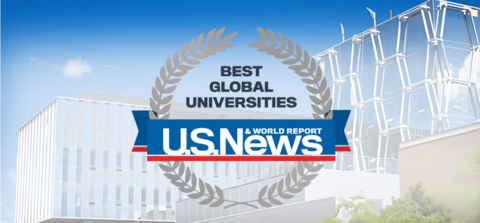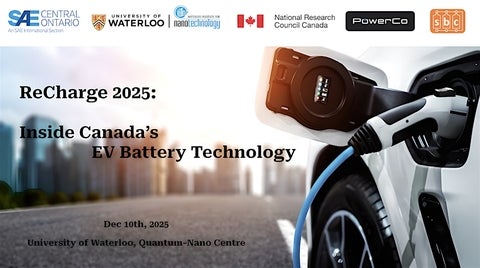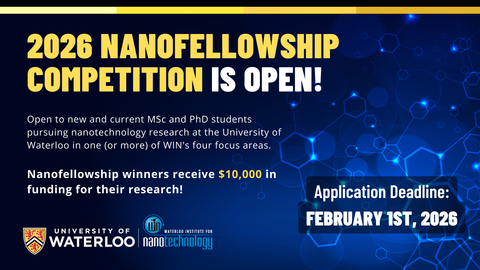The Waterloo Institute for Nanotechnology (WIN) is a global leader in discovering and developing smart and functional materials, connected devices, next generation energy systems, and therapeutics and theranostics. These discoveries by our scientists and engineers are fundamentally changing our world and helping solve some of humanity's most pressing issues. Our 285, 000 square foot, state-of-the-art facility meets the highest scientific standards for the control of vibration, electromagnetic radiation, temperature, and humidity, making it a global centre of excellence for nanotechnology and its applications.
Why is nanotechnology important? It is about creating new materials and improving ways of manufacturing products. To be more efficient, better, stronger and cheaper. Also improving the economy, environment and society. To achieve societal impact and a sustainable future, WIN has now mapped its thematic areas with the United Nations Sustainable Development Goals.
Events
ReCharge 2025: Inside Canada’s EV Battery Technology
The Waterloo Institute for Nanotechnology (WIN), and the Office of Research at the University of Waterloo, and SAE Central Ontario Section are proud to host this strategic workshop. This event brings together leaders from PowerCo Canada, the National Research Council (NRC), and the University of Waterloo - Ontario Battery and Electrochemistry Research Centre (OBEC) to share insights on the latest research, technology advancements, and production capabilities shaping the EV battery landscape.
nano tech Japan 2026
Waterloo Institute for Nanotechnology (WIN) invites researchers, startups, and industry partners to participate in nano tech Japan, one of the world’s largest nanotechnology exhibitions and conferences. This premier event brings together global leaders in nanoscience, materials, and advanced technologies to foster innovation and collaboration.






